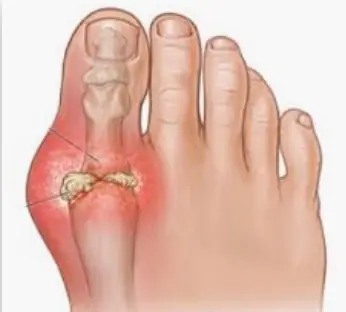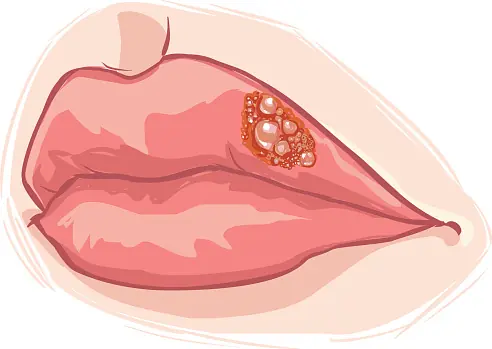
10 Habits That Harm Your Heart That You Probably Didn’t Know About
10 Habits That Harm Your Heart That You Probably Didn’t Know About
We all know our heart is one of the body's hardest-working and most vital organs. And we're likely aware of common habits that can harm it. Harvard Medical School emphasizes obvious strategies for heart health: avoiding smoking and secondhand smoke, getting at least 30 minutes of activity daily, maintaining a healthy weight (especially around the belly), eating a diverse diet of whole foods, and consuming alcohol in moderation.
However, beyond these well-known factors, several less obvious habits could be silently jeopardizing your heart health. It's time to protect your heart as much as possible by understanding and avoiding these hidden dangers.

Less Obvious Habits That Could Be Harming Your Heart:
-
Neglecting a Thorough Brush and Floss Routine Believe it or not, your oral hygiene plays a larger role in your overall health than you might think. Regular brushing and flossing do more than just ensure pearly whites. The Academy of General Dentistry recently found that three-quarters of Americans suffer from some form of gum disease, often due to neglecting flossing. Medical research suggests a link between gum disease and heart issues. So, make regular dentist visits a priority and maintain a consistent oral hygiene routine.
-
Maintaining a Poor Sleeping Schedule In our hectic world, balancing a consistent and healthy sleep schedule can be tough, often preventing us from getting the recommended 7-9 hours of sleep. However, sleeping too much or too little can be disastrous for your heart. Harvard Medical research indicates that inadequate or excessive sleep can disrupt hormone release in your body. This hormone imbalance can lead to serious threats, including heart disease, heart attack, obesity, and stroke. Prioritize a consistent and sufficient sleep schedule.
-
Avoiding the Doctor at All Costs For some, anxiety or a lack of motivation keeps them away from regular doctor's appointments. Yet, seemingly minor or unusual symptoms can escalate into life-threatening conditions if ignored. Regular check-ups allow for early detection and management of potential heart-related issues before they become critical.
-
Letting Your Temper Get the Best of You One surprising aspect of negative heart habits is that they aren't always purely physical. While sleep and hygiene are crucial, emotional factors like stress and anger can be unexpectedly harmful. Harvard Professor Laura Kubzansky notes that individuals who suppress emotions and experience sudden outbursts of anger are significantly more prone to heart disease. Finding healthy ways to relax and vent your emotions can help prevent rage from impacting your heart.
-
Not Acknowledging Daily Pollution The air we breathe, especially in large cities or certain work environments, can be laden with unseen chemicals and substances. The American Heart Association has stated that pollution from vehicles, industry, and even indoor wood burning can pose a danger to your heart. The inflammation caused by inhaling these substances can lead to serious cardiovascular problems. Be mindful of air quality and take protective measures when necessary.
-
Pessimism The power of positive thinking extends beyond mere feel-good sentiment. Recent studies have linked a positive mindset to a healthier heart and a lower risk of disease. Cultivating an optimistic outlook can make your life happier and contribute to better heart health.
-
Steroid Use Many are aware of the general dangers of steroid abuse, yet it continues. The artificial modification of hormones and natural bodily processes throws your system into confusion. While steroids may build muscle, they have also been shown to weaken your heart, and it's currently unclear if this damage is reversible.
-
Overlooking the Danger of Secondhand Smoke Secondhand smoke is more than just an unpleasant odor. The Centers for Disease Control and Prevention states that it contains over 7,000 chemicals, hundreds of which are toxic and detrimental to health. Don't underestimate the risk of lingering around secondhand smoke. If you or someone you know smokes, establish an isolated area to ensure others aren't exposed.
-
High-Risk Pregnancy History Pregnancy itself can be a physically demanding experience for many women. Those who have experienced complications such as a coma or seizure during pregnancy are twice as likely to develop some form of heart disease later in life. Be mindful of any past pregnancy difficulties and discuss with your physician whether they pose a risk for future heart issues.
-
Having Certain Autoimmune Conditions Several autoimmune conditions, despite appearing unrelated to the heart, can contribute to heart disease. WebMD reports that around 50 million people, predominantly women, in the United States suffer from an autoimmune condition. While the exact connection between autoimmune issues and heart health is still being defined by medical research, experts suspect it relates to systemic inflammatory responses.

5 Quick Heart Health Tips:
While avoiding these harmful habits is crucial, incorporating these daily tips can further enhance your heart health:
-
Quit Smoking: If you smoke, prioritize kicking the habit. It's one of the most significant steps you can take for your health right now.
-
Focus on Nutrient-Rich Foods: Emphasize foods abundant in vitamins and antioxidants.
-
Boost Omega-3 Intake: Include fish rich in omega-3 fatty acids or take omega-3 supplements, as they are essential for heart health.
-
Find an Active Hobby: Engage in activities you enjoy, like biking or yoga, to keep both your mind and body happy and healthy.
-
Manage Sodium and Avoid Processed Foods: Be mindful of your sodium intake and steer clear of highly processed foods, which often contain numerous harmful ingredients.
Maintaining good heart health is a lifelong commitment. By being aware of these less-known habits and actively adopting heart-healthy practices, you're taking powerful steps to improve your overall wellness.
News in the same category


The Anti-Cancer Diet: Evidence-Based Cancer-Fighting Foods for Prevention

If Your Nails Show These Signs, Get Checked Immediately

How Long a Person Can Live: You Can Tell Just by Looking at These 4 Key Areas

A Newly Discovered Drink That Fights Cancer: It's Not Tea or Coffee

Proven Health Benefits of Celery & Nutritional Facts (Evidence-Based)

Mold Illness: What It Is, Hidden Signs, and How to Protect Your Home

80% of Heart Attacks Are Preventable: Embrace These 5 Simple Habits

Is Cancer Hereditary? Helpful Tips to Prevent the Growth of Cancer Cells

Warning from Hospitals: Eating This Type of Meat Every Day Can Increase Cancer Risk – Don’t Be Complacent!

3 Pain Areas on the Body That Could Signal Early-Stage Cancer: Don’t Delay, or It Could Spread

Natural Solutions for Gout: Tackling Uric Acid to Prevent Pain

Don't Ignore These 15 Common Cancer Symptoms: A Guide to Early Detection

5 Hidden Nutritional Deficiencies You Likely Have (and How to Fix Them)

3-Year-Old Girl Bites and Swallows Mercury from a Broken Thermometer — Her Mother’s Quick Thinking Saves Her Life and Earns Praise from Doctors

More and More Young People Are Suffering from Colon Cancer — Doctors Warn: Eat Less of These 3 Things!

Diagnosed with Late-Stage Stomach Cancer, I Painfully Realized: 3 Foods Left Too Long in the Fridge Were the "Accomplices"

Waking Up to Shoulder Pain: Causes, Solutions, and How to Sleep Soundly

Your Lymphatic System: A Hidden Key to Lifelong Health
News Post

The Ultimate Stand: A Woman's Fight to Reclaim Her Dream Home from Entitled In-Laws and an Irresponsible Husband
Discover the inspiring story of a woman who worked tirelessly to build her dream home, only to have it claimed by her husband’s family. A tale of strength, resilience, and the ultimate stand for respect and self-worth.

Lip Reader Reveals Shocking Words CEO Said To Woman On Coldplay Kiss Cam

3 Incredible Airplane Stories That Will Leave You Speechless
Discover three shocking and heartwarming true stories that prove anything can happen when you’re 30,000 feet in the air. From conmen to surprising proposals, these tales will leave you in awe.

I Didn't Tell My Husband's Family I Speak Their Language, and It Helped Me Uncover a Sh0cking Secret About My Child
What happens when secrets are buried in a marriage? Discover how a simple misunderstanding and language barrier uncovered shocking truths. Read the story of betrayal, love, and trust in this emotional tale.

“I’m Done Paying!” — The Day She Finally Stood Up to Her Husband’s Family Li3s
Alina, tired of being the financial lifeline for Sergey and his mother, decides it’s time to put herself first. After uncovering the truth about their living situation, she confronts Sergey, forcing him to face the consequences of his neglect. What foll

She Was Paying Rent for Two Years — Until a Stranger in the Elevator Said One Sentence That Changed Everything
For two years, she thought she was paying rent — until a neighbor revealed the apartment belonged to her husband’s mother. Anna quietly uncovered the truth behind the monthly payments, and when the facts were undeniable, she chose to walk away — wi

A little girl shares her lunch with a hungry classmate — years later he shows up at her wedding, and who would have thought
In the noisy cafeteria of an elementary school, a little girl named Lilia noticed a lonely boy with an empty tray. She shared her lunch, expecting nothing in return. Years later, as she stood at the altar in her wedding dress, that same boy—now a succes

Homeless Dad of Four Gives His Last $2 to a Stranger—Wakes Up to a Life-Changing Surprise!
When Brandon, a homeless father of four, gave his last $2 to help an elderly man buy a bottle of water, he had no idea that simple gesture would turn his life upside down. The next day, he inherited a massive company and a lavish estate—only to find him

After the Divorce, My Dad Always Chose His New Family's Kids—But He Didn't Expect This at My Graduation Party
They say family is everything, but sometimes, it’s the family that hurts you most. My name is Sharon, and I’ll never forget the day my father’s favoritism towards his new family crossed the line—only to learn the hard way that actions have consequ

"She Ignored His Letters for 53 Years, But When She Finally Visited Him, She Found a Life Sh@ttered"
They say your first love never fades, but for Bessie Walsh, it wasn’t just her first love that she’d never forgotten—it was the unresolved past that had stayed with her for over five decades.

"My Sister-in-Law Made My Mom Sleep on the Floor During a Family Trip—Here’s What Happened Next"
They say family is everything. But sometimes, family can hurt you in ways you’d never expect. My name is Sharon, and I’m about to tell you how my sister-in-law turned what should’ve been a beautiful family trip into the most humiliating experience f

My Husband and His Mother Tried to Take Our Apartment to His Sister — But My Mom's Response Shut Them Down for Good
When a young wife’s husband and mother-in-law suggested giving away her apartment to his sister, her mother’s calm but powerful response stunned the entire family. A story of betrayal, boundaries, and quiet strength.

15 Common Cancer Symptoms You Shouldn’t Ignore

The Anti-Cancer Diet: Evidence-Based Cancer-Fighting Foods for Prevention

If Facebook Is Not Spying on Us, Why Do We Get Ads for Things We Speak About?

We are receiving strange radio signals from deep beneath the Antarctic ice. No one knows why.

Healing Power And Important Safety Tips Of Castor Leaves

Man Kicked Out of Dubai on £3,000 Holiday Over His Face Tattoos
